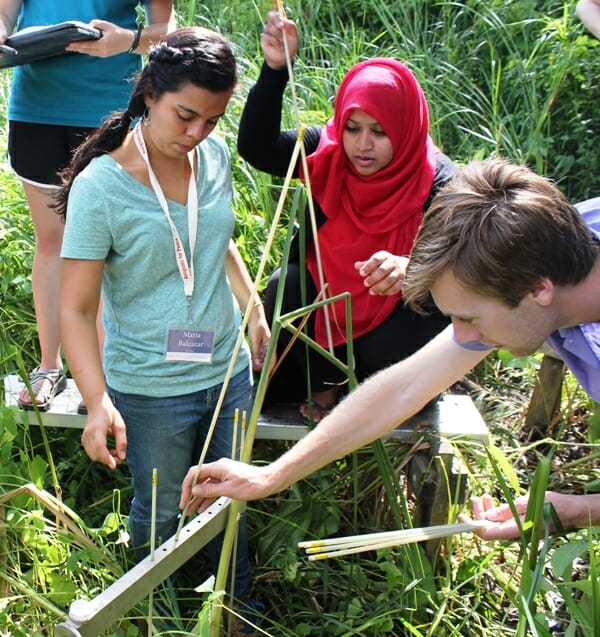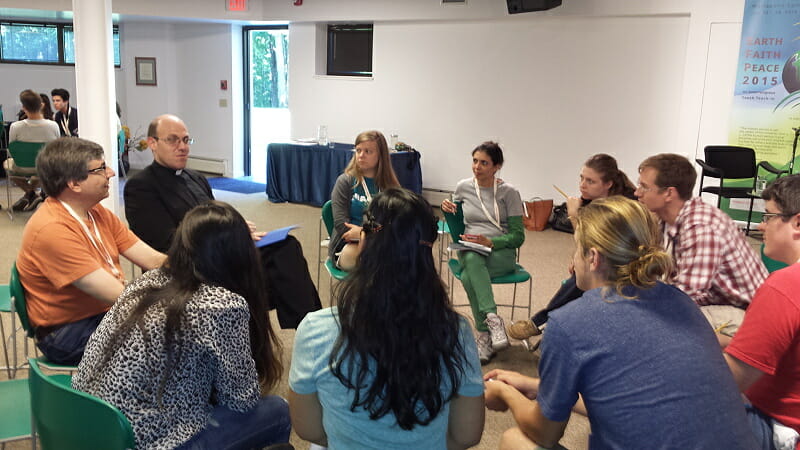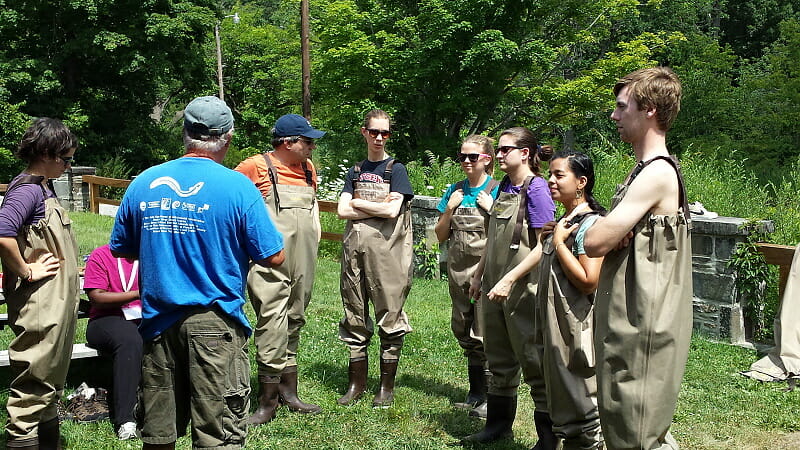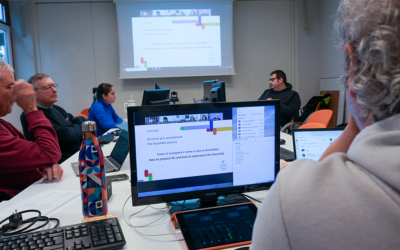 Young people from five religions and several Christian denomination, specifically chosen as emergent leaders in the environmental field, met at Mariapolis Luminosa of the Focolare in the State of New York, USA, to reflect on safeguarding the planet, our common home. Guided by the ideals of Religions for Peace (RFP) and of the Focolare the Teach-in began with an analysis of the current situation of the environment and the strong link between global stability and climate change. The phenomenon of climate change calls for a new awareness and change of view, implied by the title of the three-day event. Perhaps it will find a solution thanks to the synergy between people from different religious backgrounds. This was the wish of the organisers of Teach-in, which was held at the end of July 2015. Despite the variety of their beliefs they came to the same realisation that every effort in favor of the environment will be more efficacious inasmuch as it is done together. Amongst the interventions were those of Rev. Richard Cizik (New Evangelical Partnership) and of the Rabbi Lawrence Troster, bioethicist who said that: “By 2050 we could have 50 million climate refugees, with serious consequences for peaceful coexistence amongst peoples.” His words were echoed by Asma Mahdi, oceanographer and member of Green Muslims, highlighting that the most vulnerable countries are Muslim: “In Bangladesh, for example, if the ocean level continues to rise, by 2050, 17% of the territory will be awash, forcing 18 million people to move elsewhere.” These are alarming figures, and several Polynesian islands would completely submerged.
Young people from five religions and several Christian denomination, specifically chosen as emergent leaders in the environmental field, met at Mariapolis Luminosa of the Focolare in the State of New York, USA, to reflect on safeguarding the planet, our common home. Guided by the ideals of Religions for Peace (RFP) and of the Focolare the Teach-in began with an analysis of the current situation of the environment and the strong link between global stability and climate change. The phenomenon of climate change calls for a new awareness and change of view, implied by the title of the three-day event. Perhaps it will find a solution thanks to the synergy between people from different religious backgrounds. This was the wish of the organisers of Teach-in, which was held at the end of July 2015. Despite the variety of their beliefs they came to the same realisation that every effort in favor of the environment will be more efficacious inasmuch as it is done together. Amongst the interventions were those of Rev. Richard Cizik (New Evangelical Partnership) and of the Rabbi Lawrence Troster, bioethicist who said that: “By 2050 we could have 50 million climate refugees, with serious consequences for peaceful coexistence amongst peoples.” His words were echoed by Asma Mahdi, oceanographer and member of Green Muslims, highlighting that the most vulnerable countries are Muslim: “In Bangladesh, for example, if the ocean level continues to rise, by 2050, 17% of the territory will be awash, forcing 18 million people to move elsewhere.” These are alarming figures, and several Polynesian islands would completely submerged.  Amongst the speakers was Msgr. Joseph Grech from the Permanent Observer Mission of the Holy See to the United Nations, who referred to several excerpts from Pope Francis’s Encyclical Letter Laudato si while underscoring how economy and ecology walk hand in hand, since all our actions have an impact on nature. Three environmental researchers from three different American universities were of the same opinon: Robert Yantosca (Harvard), Valentine Nzengung (Georgia) and Tasrunji Singh (Ohio), for whom the respective religious convictions have become motivating factors and guides in the scientific effort in favour of the environment.
Amongst the speakers was Msgr. Joseph Grech from the Permanent Observer Mission of the Holy See to the United Nations, who referred to several excerpts from Pope Francis’s Encyclical Letter Laudato si while underscoring how economy and ecology walk hand in hand, since all our actions have an impact on nature. Three environmental researchers from three different American universities were of the same opinon: Robert Yantosca (Harvard), Valentine Nzengung (Georgia) and Tasrunji Singh (Ohio), for whom the respective religious convictions have become motivating factors and guides in the scientific effort in favour of the environment.  “Go out!” was the catch phrase that conducted the second part of the Teach-in and it led to the delineation of a series of behaviours to put into practice. John Mundell from the Focolare, owner of a company of environmental consultants, presented a landscape of initiatives connected to the “Earth Cube,” whose six sides present daily suggestions for renewing and conserving a healthy environment. There was also the visit to the projects at the nearby Esaurine Federal Reserve. RFP executive Aaron Stauffer, stated at the conclusion: “It has been a witness of the power of multireligious cooperation and peace.” And Brazilian, Lira Raiana, who is finishing her doctorate in ecology: “We’ve experienced that we have at least two things in common: an intense interest in sustainability of the planet and a religious belief that offers the correct motivations to take care of it. Each one of us came with our convictions and personal ideas and now we find ourselves united in the common objective of many: the protection of the earth and of its inhabitants.”
“Go out!” was the catch phrase that conducted the second part of the Teach-in and it led to the delineation of a series of behaviours to put into practice. John Mundell from the Focolare, owner of a company of environmental consultants, presented a landscape of initiatives connected to the “Earth Cube,” whose six sides present daily suggestions for renewing and conserving a healthy environment. There was also the visit to the projects at the nearby Esaurine Federal Reserve. RFP executive Aaron Stauffer, stated at the conclusion: “It has been a witness of the power of multireligious cooperation and peace.” And Brazilian, Lira Raiana, who is finishing her doctorate in ecology: “We’ve experienced that we have at least two things in common: an intense interest in sustainability of the planet and a religious belief that offers the correct motivations to take care of it. Each one of us came with our convictions and personal ideas and now we find ourselves united in the common objective of many: the protection of the earth and of its inhabitants.”
Stop to give comfort to others
Stop to give comfort to others




0 Comments